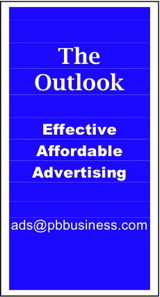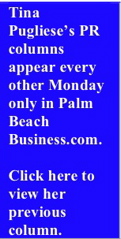Phone Etiquette When Contacting the Media
By Tina L. Pugliese, APR, Pugliese Public Relations
 Regardless of the size and scope of your public relations program, look for an opportunity to directly contact at least some of the editors and journalists important to your organization. The telephone is a tremendous supporter in any public relations program.
Regardless of the size and scope of your public relations program, look for an opportunity to directly contact at least some of the editors and journalists important to your organization. The telephone is a tremendous supporter in any public relations program.
A phone call establishes person-to-person contact, lends credibility to your public relations effort, and helps your contact to associate a name to the news releases you subsequently send to them. A few moments on the phone, either as a prelude or a follow-up to a news release, not only draws attention to your organization but can also impart a sense of immediacy and urgency that may provide the edge you need to acquire editorial coverage of your story.
When calling an editor, always immediately identify yourself and your organization. Then ask if the editor is on deadline. If their answer is "Yes," do not tie up their time but offer to call back in a day or two and then do so. Editors are known for their extraordinary memory—they never forget a nuisance or a courtesy. If the editor is not on deadline, then state immediately why you are calling, saying something like this:
"Hello, I'm (name) with (my organization), and I'm calling to alert you to our announcement of (news topic). I want you to know that I'm available to you for any additional information or an interview, now or any time in the future. Give me a call at (phone number) or e-mail me at (e-mail address)."
Look at what the dialogue above accomplishes. You have identified yourself and your organization, stated your business succinctly, and offered your services as a liaison. Now let the editor decide what to do. If they seem to want to get off the phone quickly, don't worry. They may have something urgent demanding their attention or a story that needs to be filed immediately. You can always call back or have the editor return your call later. Listen carefully to the editor's recommendations for calling them at another time.
While most editors and reporters are busy, they are seldom rude and usually cooperative. If the editor asks why you are calling, or has other questions, be prepared to answer. As in any business situation, always do your homework. If necessary, write down potential questions and answers and rehearse beforehand. Nothing irritates a busy editor or reporter more than dealing with a public relations representative who is unprepared to answer basic questions.
If you cannot answer all the questions, promise to find the answers and send the information by e-mail. Be sure to do this in a timely fashion. Editors appreciate quick responses and will give more attention to people who can give them the information they are seeking in a timely manner.
If the editor gives you a "No thanks, not interested" response—which may happen quite frequently at the beginning—you should ask if there is someone else on staff who would be interested in your information. If there is time, and the editor seems receptive to sharing information, you might also ask if there is anything special about your industry they are looking for, now or in the future. After all, the less you waste of each other's time, the more productive your relationship will be.
Once editors know of you and your organization, there may be times when they contact you directly. For example, the publications you have targeted may occasionally feature an editorial focus on your industry. Check the editorial calendars of these publications on a regular basis. Periodicals plan their issues two to three months in advance of the publication date, so you need to be proactive in pitching your organization's story ahead of time. Editorial calendars are often made available on the publication's Website. They are also usually available free of charge from the publication's advertising department. If all else fails, contacting the publication's editorial assistant and making a polite request should yield positive results.
Another important way to use the phone is to find out who you should be contacting at a specific publication. The receptionist is usually cooperative and very knowledgeable about this. You may end up talking to a lot of different people before you get the answers you need, but public relations is far more effective when you deliver your news to the right people.
Tina L. Pugliese, APR is an executive coach and counselor for Pugliese Public Relations, a communications firm in Boynton Beach, Florida. Pugliese is an accredited member of the Public Relations Society of America, and is the author of the book, Public Relations for Pharmacists, and e-books, Marketing Your Business for Success, How To Work With The Media, and Public Relations Manual — A Guide for Entrepreneurs. She can be reached at (561) 889-3575 and by email at Tina@PugliesePR.com. Her web site is www.PugliesePR.com.
Article excerpted from e-book, Public Relations Manual — A Guide for Entrepreneurs, by Tina L. Pugliese, APR.




